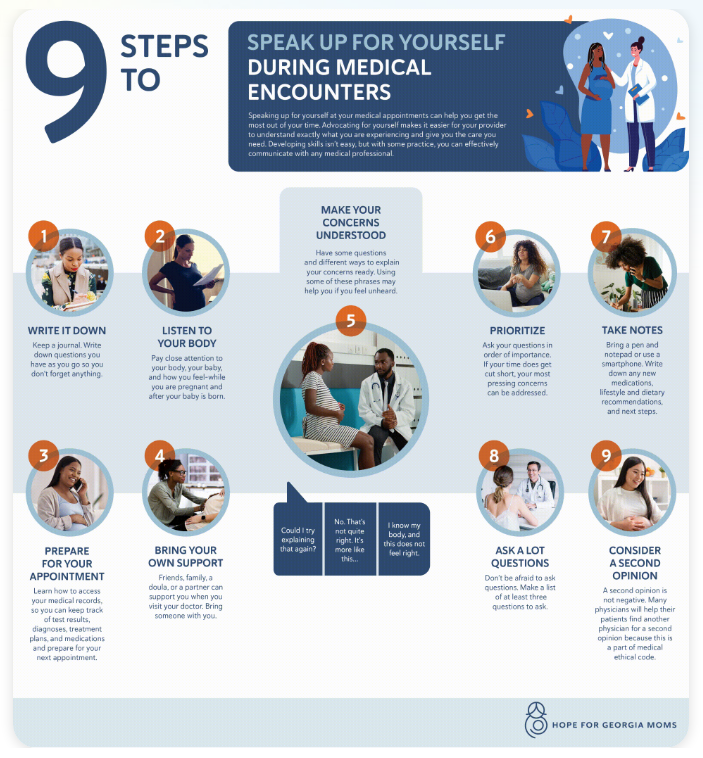Evaluation Partner for Northeast Georgia Health System’s HOPE for Georgia Moms Initiative
Background
Maternal mortality is a critical public health issue in the United States, with cardiovascular conditions as a leading cause of death among pregnant and postpartum women. In Georgia, these conditions account for nearly a quarter of maternal deaths, disproportionately affecting marginalized populations. To address these challenges, the Northeast Georgia Health System (NGHS) was one of nine recipients to receive a $1 million State Maternal Health Innovation and Data Capacity grant from the Health Resources and Services Administration (HRSA) in September 2022. NGHS is a non-profit health system with five hospitals and various outpatient locations that serves over 1 million people in the region. With this funding, NGHS created HOPE (Healthy Outcomes and Positive Experiences) for Georgia Moms to improve maternal health outcomes and promote equitable care.
One initiative of HOPE for Georgia Moms is the Maternal Cardiac Program whose mission is to screen, monitor, and provide targeted care to pregnant women at risk of cardiovascular events before, during, and after pregnancy. The program uses the Alliance for Innovation on Maternal Health (AIM) Cardiac Conditions in Obstetric Care Bundle, a structured set of evidence-informed best practices, to improve maternal health outcomes.
Karna plays a key role in this initiative. We support monitoring and evaluation, craft data visualizations, develop educational resources, and ensure comprehensive data reporting. Together, NGHS and Karna are building a sustainable model for improving maternal health outcomes in Georgia and beyond.
The success of these efforts led to additional funding. The HOPE for Georgia Moms initiative recently received an additional $5 million grant from HRSA to continue and expand this critical work, ensuring that mothers across Georgia have access to life-saving care. Karna will continue to serve as NGHS’s evaluation partner in their expanded endeavors.
Challenge:
Cardiovascular complications are often preventable with timely screening and intervention. However, gaps in care coordination, provider training, and patient education limit access to life-saving resources. NGHS needed a scalable, evidence-based solution to improve maternal cardiac health outcomes while addressing systemic inequities affecting vulnerable populations, and to ensure that measurable improvements aligned with established objectives.


